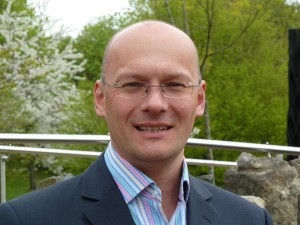Author: Sean Beer and Scott Cohen (Tourism)
Alternative name suggestion: Recreation and leisure
Brief theme summary: We view leisure and recreation as an interdisciplinary theme that closely engages associated subjects of tourism, sport, health, events, retail and hospitality, as well as the arts, outdoor pursuits, play and entertainment, amongst others. Central to understandings of leisure is its association with non-work time and work/life balances, although admittedly the boundaries between leisure and work often blur.
Experience is central to leisure and recreation, in which people may seek to enhance the quality of their lives through leisure’s potential to transform, refresh, recreate, relax and/or escape. Leisure and recreation link to the renewal and development of social bonds, social capital, forms of cultural consumption, creativity and self-development, through both formal and informal modes and at home and away from home.
Leisure and recreation is also concerned with issues of social inclusion, equity and diversity through policy and practice, as well as socio-cultural and environmental research in relation to its impacts.
Also drawing together notions of hospitable space and the formation of some types of temporary events, leisure and recreation can thus be seen as encompassing a full range of practices associated with the meanings, processes and activities that may enrich non-work time and space.
Scope of theme: what is included? Leisure, recreation, leisure/work balance, tourism, hospitality, events, retail, sport, health and healthy living, physical activity, exercise, play, gaming, experience, entertainment, casual/serious leisure, art, culture, creativity, learning, consumption, pro-sumption, lifestyle, volunteering, adventure, local/global, physical/virtual, transport, movement/mobility, social/cultural/environmental/economic aspects of leisure, fusion.
Scope of theme: what is excluded? For discussion of this please see section on Links with other BU themes under consideration.
Which big societal questions are addressed by this theme?
- Quality of life: mental, physical, spiritual
- The Big Society: the relationship between the public, private and third sectors and society, responsibility and individual behaviour within society with regard to many of the big issues of the day such as climate change, health, sustainability
- Work life balance: the blurring of the edges between work and leisure
- Equality and access (Gender, age, disability, sexual orientation, wealth, family units)
- Aging population (A particular issue for the UK and the SW of England.)
- Multiculturalism
- Localism and globalisation
- The growth of the virtual world
How do these link to the priorities of the major funding bodies?
- Arts and Humanities Research Council, numerous opportunities
- Economic and Social Research Council, all areas of their strategic priorities; Influencing Behaviour and Informing Interventions, A Vibrant and Fair Society, Economic Performance and Sustainable Growth.
- Leverhulme, broad, but for example, particularly focussing on surmounting traditional disciplinary academic boundaries
- British Academy, a wide range of opportunities
- Nuffield Foundation, many opportunities
- Esmée Fairbairn Foundation, opportunities for funded research which helps them in their aim to improve the quality of life for people and communities in the UK both now and in the future
- Natural Environment Research Council, links between leisure, the natural environment and sustainability
- Engineering and Physical Sciences Research Council, areas such as technology and behaviour interventions.
- Biotechnology and Biological Sciences Research Council, areas such as food and sustainability.
- Medical Research Council, collaborative work through programme grant scheme
- European Union, potential under FP7 and in other areas
Research Excellence Framework Unit of Assessment 26 & 19 (and also others though the emphasis would be more towards the theme of the other Unit.)
How does this theme interlink with the other BU themes currently under consideration? There are a multitude of connections to the other themes. This is not seen as a disadvantage, we deliberately set out to be inclusive and holistic in our approach rather than exclusive and reductionist. The approach is underpinned by an intention to look for fruitful areas of collaboration and to be able to showcase the work of colleagues in a variety of ways.
Thus within Health and wellbeing there are overlaps in terms of quality of life, social inclusion and involvement in volunteering, for instance, but not necessarily in relation to management of health care and health care professionals. In terms of Environmental change and biodiversity and the Green economy and sustainability the natural environment and human wellbeing are intrinsically linked, as are concepts of sustainability and the action of the individual through volunteering for an environmental charity for example. The science of biodiversity is not an area that comes within the theme.
There are synergies with regard to work looking at Aging, relating to access and quality of life, but not directly with specific therapies. For many people learning is leisure, though work based learning is not. There are connections with Learning and public engagement, as there are with Entrepreneurship and economic growth, given the role of individuals outside work in things like social entrepreneurship and also entrepreneurship within specific leisure and recreation industries.
For many individuals leisure and recreation is bound up with Technology and design as well as the Creative and digital economies, and whilst this theme is not connected to the intricacies of web design (unless it is your hobby) increasingly people are conducting their leisure lives in virtual worlds, where social connections and connecting is a virtual experience of life, love and even sex, but who is to say that it is any better or worse for that. All this seems to be underpinned by change and any consideration of Culture and society or Society & Social Change must be a close bed fellow to this and all the other themes.
 Watch this excellent short video from BU’s
Watch this excellent short video from BU’s  Watch this excellent short video from BU’s
Watch this excellent short video from BU’s  Watch this excellent short video from BU’s Dr Richard Shipway who discusses the 2012 Olympic and Paralympic games and how his research has been used by local councils to improve the delivery of the games in the area.
Watch this excellent short video from BU’s Dr Richard Shipway who discusses the 2012 Olympic and Paralympic games and how his research has been used by local councils to improve the delivery of the games in the area. Watch this excellent short video from BU’s
Watch this excellent short video from BU’s 










 REF Code of Practice consultation is open!
REF Code of Practice consultation is open! BU Leads AI-Driven Work Package in EU Horizon SUSHEAS Project
BU Leads AI-Driven Work Package in EU Horizon SUSHEAS Project Evidence Synthesis Centre open at Kathmandu University
Evidence Synthesis Centre open at Kathmandu University Expand Your Impact: Collaboration and Networking Workshops for Researchers
Expand Your Impact: Collaboration and Networking Workshops for Researchers ECR Funding Open Call: Research Culture & Community Grant – Apply now
ECR Funding Open Call: Research Culture & Community Grant – Apply now ECR Funding Open Call: Research Culture & Community Grant – Application Deadline Friday 12 December
ECR Funding Open Call: Research Culture & Community Grant – Application Deadline Friday 12 December MSCA Postdoctoral Fellowships 2025 Call
MSCA Postdoctoral Fellowships 2025 Call ERC Advanced Grant 2025 Webinar
ERC Advanced Grant 2025 Webinar Update on UKRO services
Update on UKRO services European research project exploring use of ‘virtual twins’ to better manage metabolic associated fatty liver disease
European research project exploring use of ‘virtual twins’ to better manage metabolic associated fatty liver disease